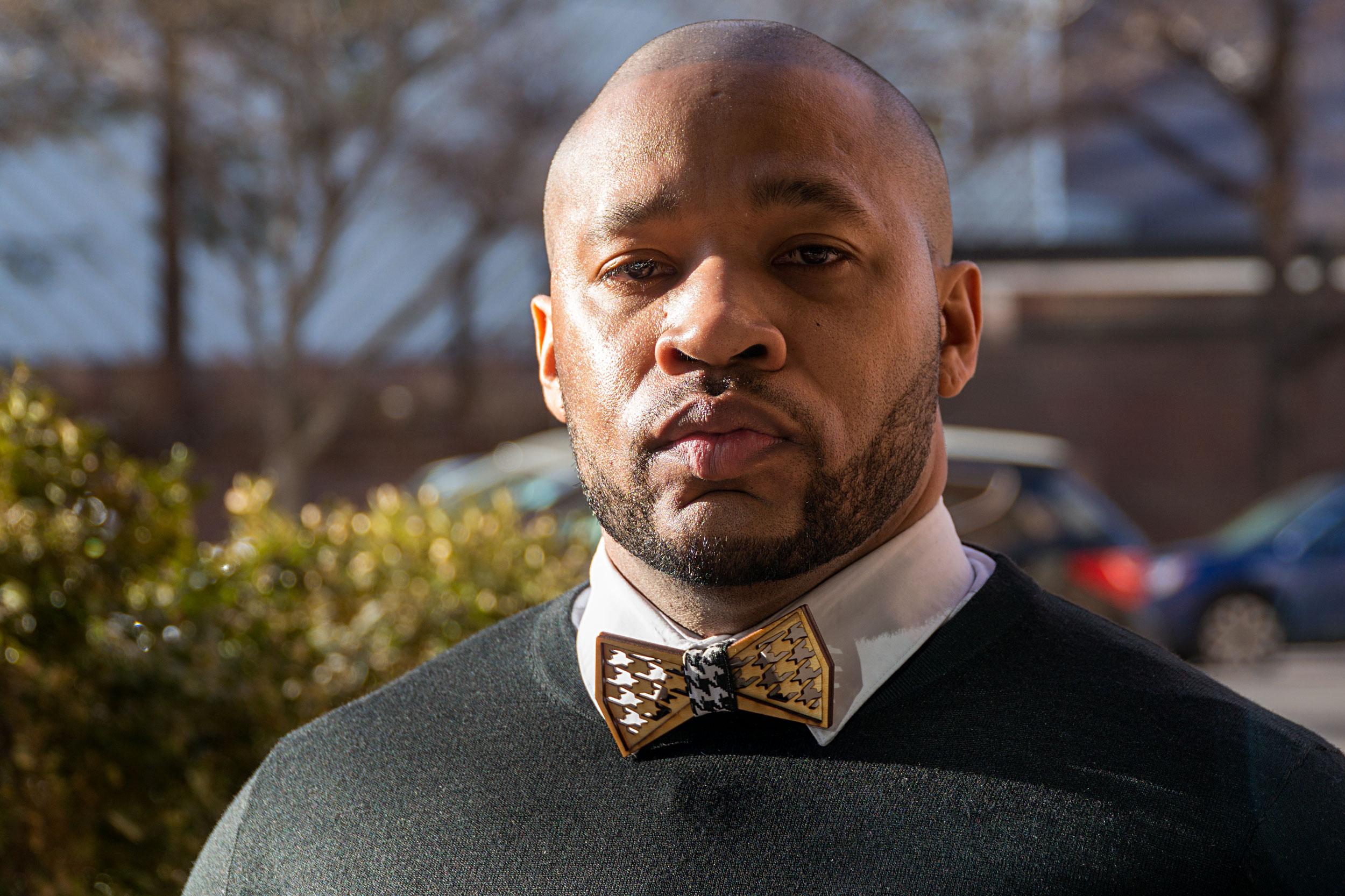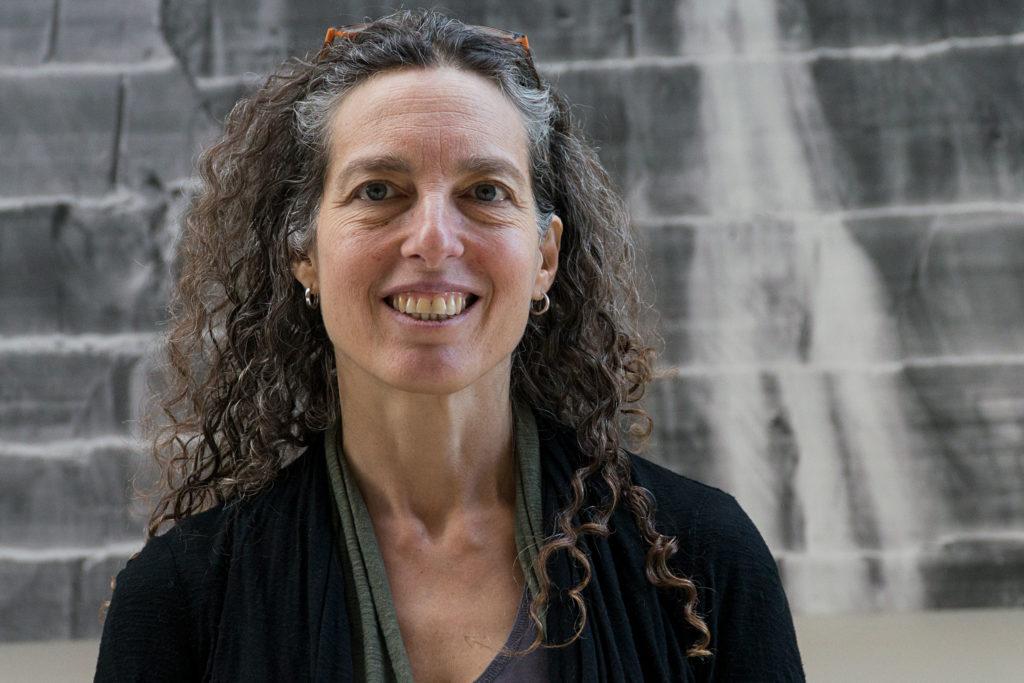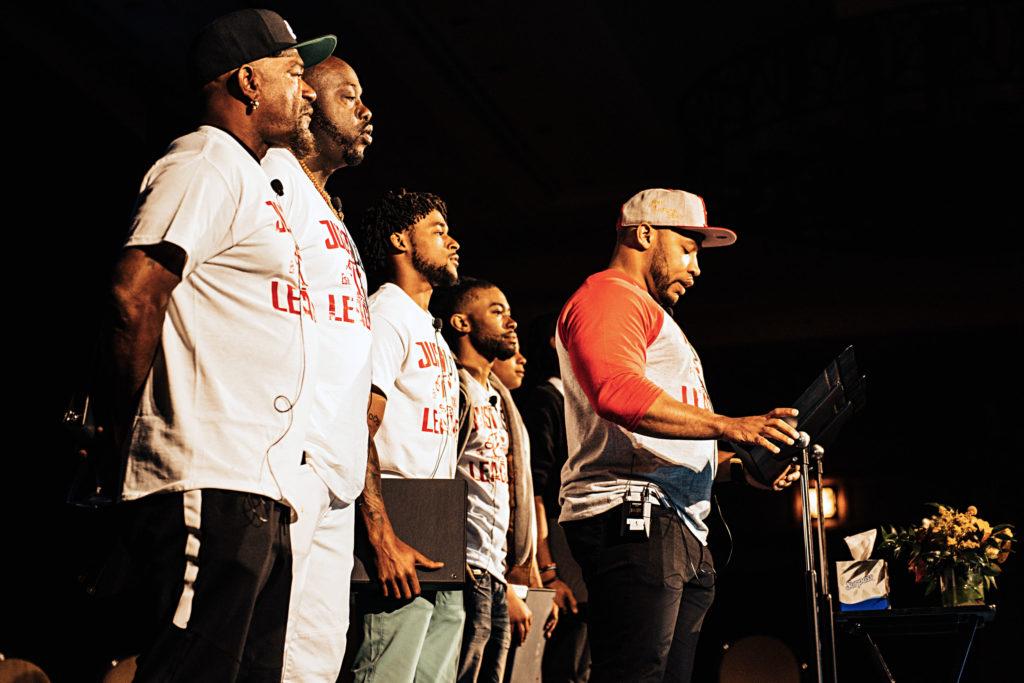
When Juaquin Mobley was in prison, he felt like his humanity was stripped away. The simplest of interactions with staff, even a handshake, would have made a difference.
“I think it would've made me feel human again,” he said. “When you're going through that system, a lot of us, we feel like the titles that they give us, criminals. And as a result, some will start to believe that, and once you start to believe that you start to act out that way.”
Mobley got out in 2013 and ever since he’s tried to resist this label. He’s now involved with Boulder’s Motus Theater, working on a project called “JustUs,” which hopes to humanize people who have served time.
Mobley is one of several formerly incarcerated individuals who will step on stage to share their most harrowing experiences in front of a live audience on Martin Luther King Jr. Day at Boulder’s Dairy Arts Center.
It’ll be the project’s first public showing. But Mobley got to test out his theatrical sea legs over the summer when he told his story to 1,600 people at the 2019 National Association of Community and Restorative Justice Conference in Denver.
“I've never shared my story with that many people I didn't know,” he said of an experience he found empowering.
Mobley “got stuck in the streets,” selling drugs as a teen, addicted to the lifestyle even when it got him in trouble.
“The notoriety, the fame, the respect and of course the fast money pretty much keeps you enticed and pulled in,” he said.
He went straight for a bit, going to school to study fashion design and to raise two kids. Then he ended up short on cash. As he waited for his financial aid check to come in, he thought, “I can just jump back in the streets and make some quick money.”
That jump landed him in prison with a 15-year sentence for armed robbery. He got out early, but life immediately afterward proved to be difficult.
“They let me out with just $10 in my pocket, no fresh clothes, no hope, and I almost didn’t make it,” Mobley wrote for his “JustUs” monologue that reflects on the experience.

Over the course of 17 weeks, Motus Theater helped Mobley and other individuals who had done time to think through their stories. To figure out what part of their lives they wanted to share and how to share them.
“We learned how to articulate our opinions and ideas a lot better,” Mobley said. “It was also a cathartic experience for a lot of us. A lot of us were dealing with a lot of inner trauma.”
Motus Theater artistic director Kirsten Wilson said they first had to process their trauma before the performers could share their powerful stories.
“Trauma destroys narrative, which is why often when you interview people in war zones or you interview people who have experienced violence, the story they tell is circular and confusing,” she said. “But those are the stories we most need to hear.”
Wilson founded Motus Theater in 2011 to create theatrical storytelling events that focus on social issues and give voice to those who often feel silenced. Much of Motus Theater’s previous work has highlighted the stories of immigrants, many of whom are undocumented.
In “JustUs,” the formerly incarcerated performers have the chance to acknowledge and apologize for the harm they’ve done even as they look “at the harm caused by the criminal justice system.”
That’s why Motus invites people who work in the system to hear and even read these stories.
At that same restorative justice conference last June, Boulder County District Attorney Michael Dougherty read the words of a man who was standing right there next to him — Dereck Bell went to prison on drug charges and described the violence he saw on the inside.
“They sent me into that evil place and it is crazy in there. I don’t want to kill anybody, but I don’t want to be killed. Every chance I got, I called my mom crying, ‘I don’t want to be here, I don’t want to be here.’”
Dougherty was blown away by the raw words.
“It was very emotional and incredibly powerful,” he said. “I actually underestimated the impact it would have on me and, I think, fair to say, the impact it would have on people in the audience.”

He’s already made changes in his district, including implementing mental health diversion programs. But performing with the “JustUs” project has inspired him to do even more to make jails and prisons better for those who live and work there.
“Rather than dehumanize offenders, look at offenders as individuals and assess how best to get them back on the right track,” Dougherty said. “And part of that, in my opinion, is by listening and understanding what got them there in the first place.”
About half of the people who are released from Colorado’s prisons end up back behind bars — a recidivism rate of 50 percent. That’s higher than the national average. Dougherty wonders if “JustUs” could be a creative way to reduce that number because “these stories are such an incredibly powerful and telling way for us to develop a deeper understanding for how to help them, improve the justice system and enhance public safety.”
It’s hard to prove that the arts can make a dent in those numbers.
Kevin Wright, who directs Arizona State University’s Center for Correctional Solutions and is an associate professor in the School of Criminology and Criminal Justice, said whether the arts can affect recidivism isn’t the question people should ask. It can reduce individuals to “just numbers and statistics” when the objective is often to do the opposite.
“These programs can be very positive and on the inside, they can keep people motivated, they can give people a purpose and give people hope, both for those who live and work in the system so they can make our prisons better,” he said.
Wright thinks society can learn a lot from these performers who “are uniquely positioned with some expertise that many of us don't have.” After all, they’ve experienced prison life first-hand.
Motus Theater will bring these performances to communities around Colorado and, eventually, around the country. Even if the performances grow, there’s already a direct effect. “JustUs” performer Juaquin Mobley, who now helps people transition from prison back into their communities, thinks formerly incarcerated people could really benefit from sharing their stories.
“Even if you don't plan on performing your story... write it down, share it with your loved ones, or even if you just share with yourself in a mirror,” he said.” You have no clue how that makes you feel as far as freedom and getting it off your chest.”
Motus Theater presents "JustUs: Stories From the Frontlines of the Criminal Justice System” at the Dairy Arts Center in Boulder on Jan. 20, 2020 at 4:30 p.m. for a family-friendly performance, which will be followed by a panel discussion with the monologists and criminal justice officials, and at 6:30 p.m.









